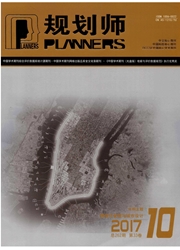

 中文摘要:
中文摘要:
“十一五”期间,为了应对国内外经济发展形势的深刻变化,我国加快转变经济发展方式,密集出台了“国家战略性”区域规划.研究以《皖江城市带承接产业转移示范区规划》实施影响评估为例,遵循“基于-致性”评估理论,以政策文件解析、政府部门座谈、典型企业调研、统计数据分析和对比分析为评估方法,对示范区的平台载体、产业发展、产业创新、区域联动和资源环境5个方面进行规划实施影响评估,为皖江城市带示范区进一步发展提供规划保障,为我国中西部地区承接产业转移提供参考案例,为我国区域规划实施效果提供实证基础.
 英文摘要:
英文摘要:
Since the 11^st five-year plan, China has accelerated economic transition in response to intemational and domestic socio- economic changes. Regional planning was made a national development strategy. The paper takes Planning for Paradigm Relocated Industrial District of Wanjiang City Belt as a case study, follows consistency evaluation theory, uses methodologies of policy analysis, govemmental department discussion, typical enterprise investigation, statistical analysis, and comparative study, evaluates five aspects of the planning implementation: platform, industrial development, industrial innovation, regional interaction, resource and environment. The study provides a planning guarantee for the paradigm district, a reference for other relocated industrial parks, and a positive study case for China's regional planning implementation.
 同期刊论文项目
同期刊论文项目
 同项目期刊论文
同项目期刊论文
 期刊信息
期刊信息
